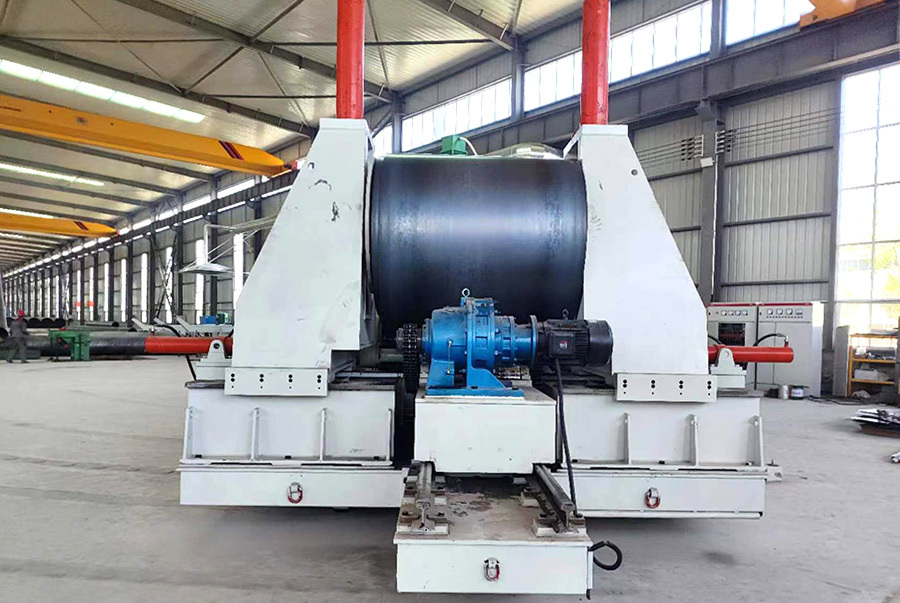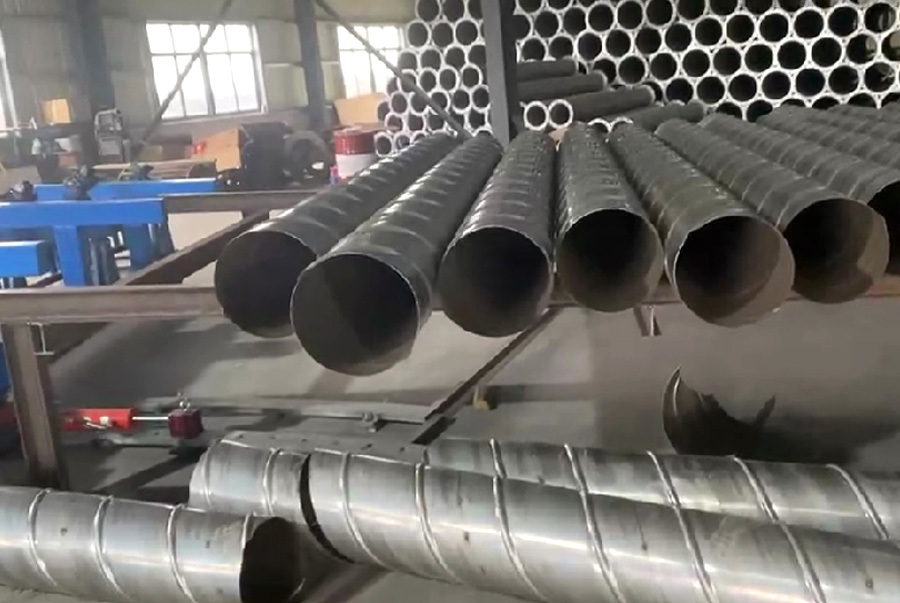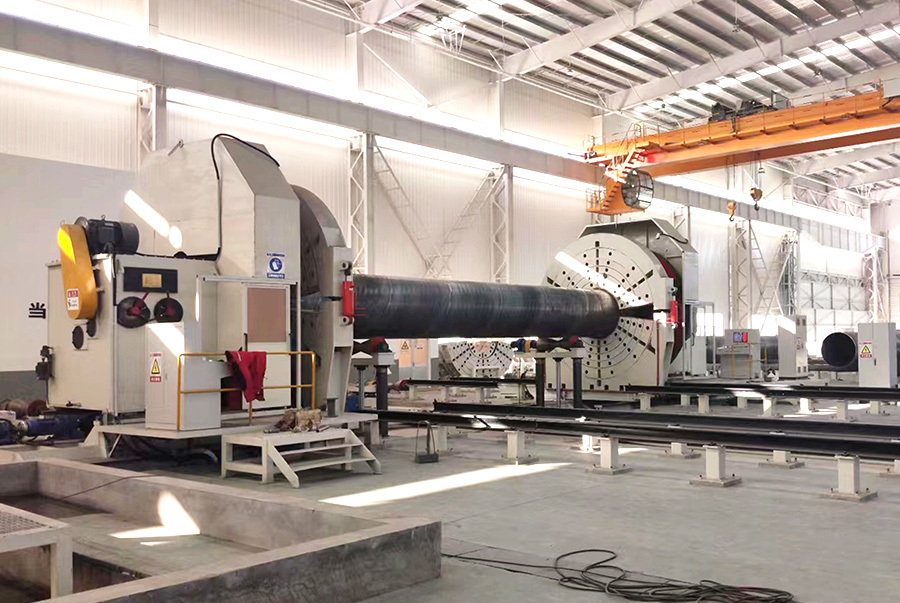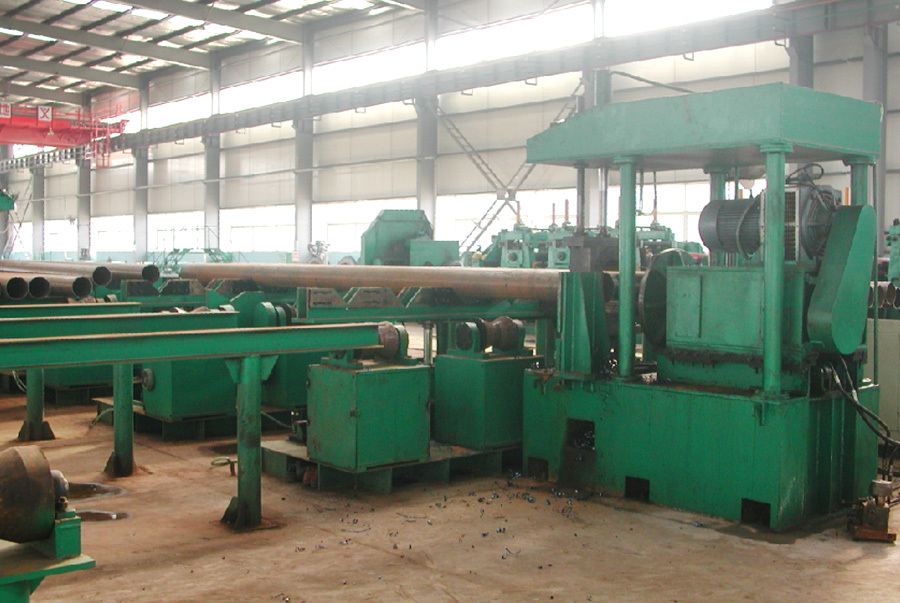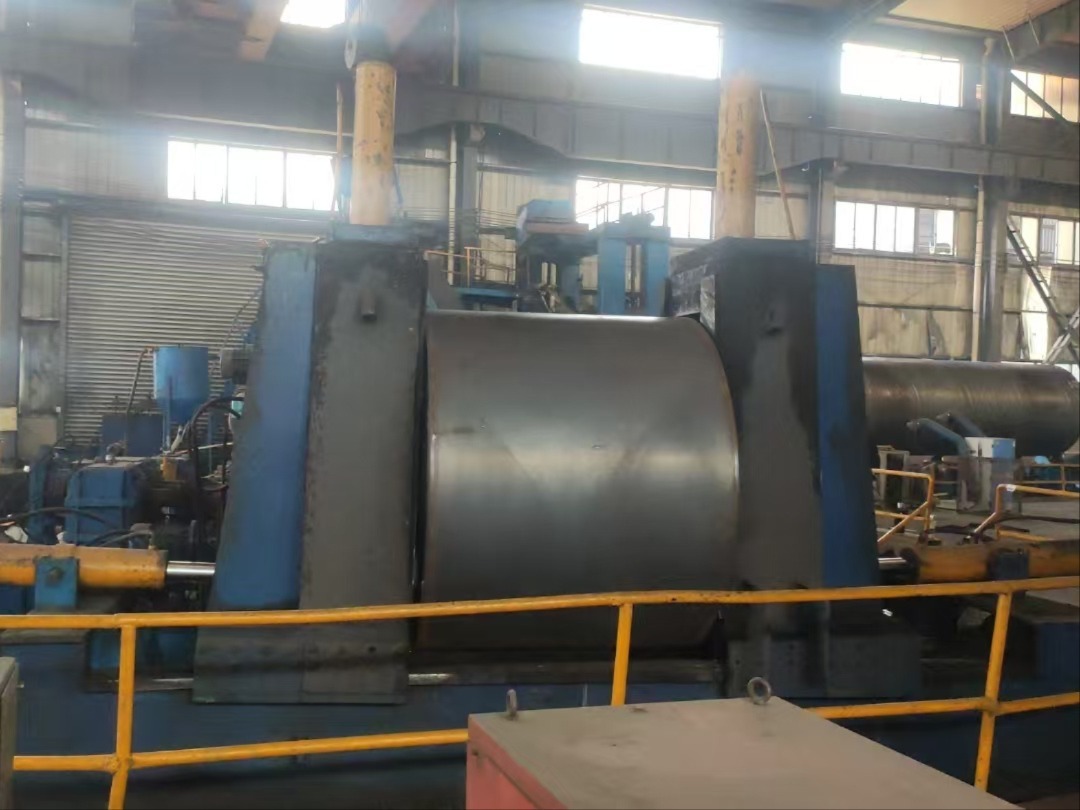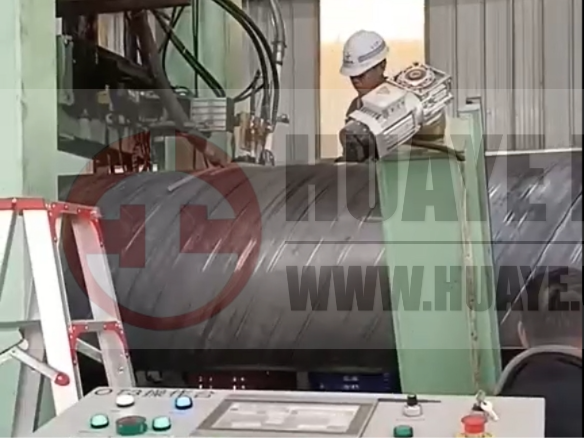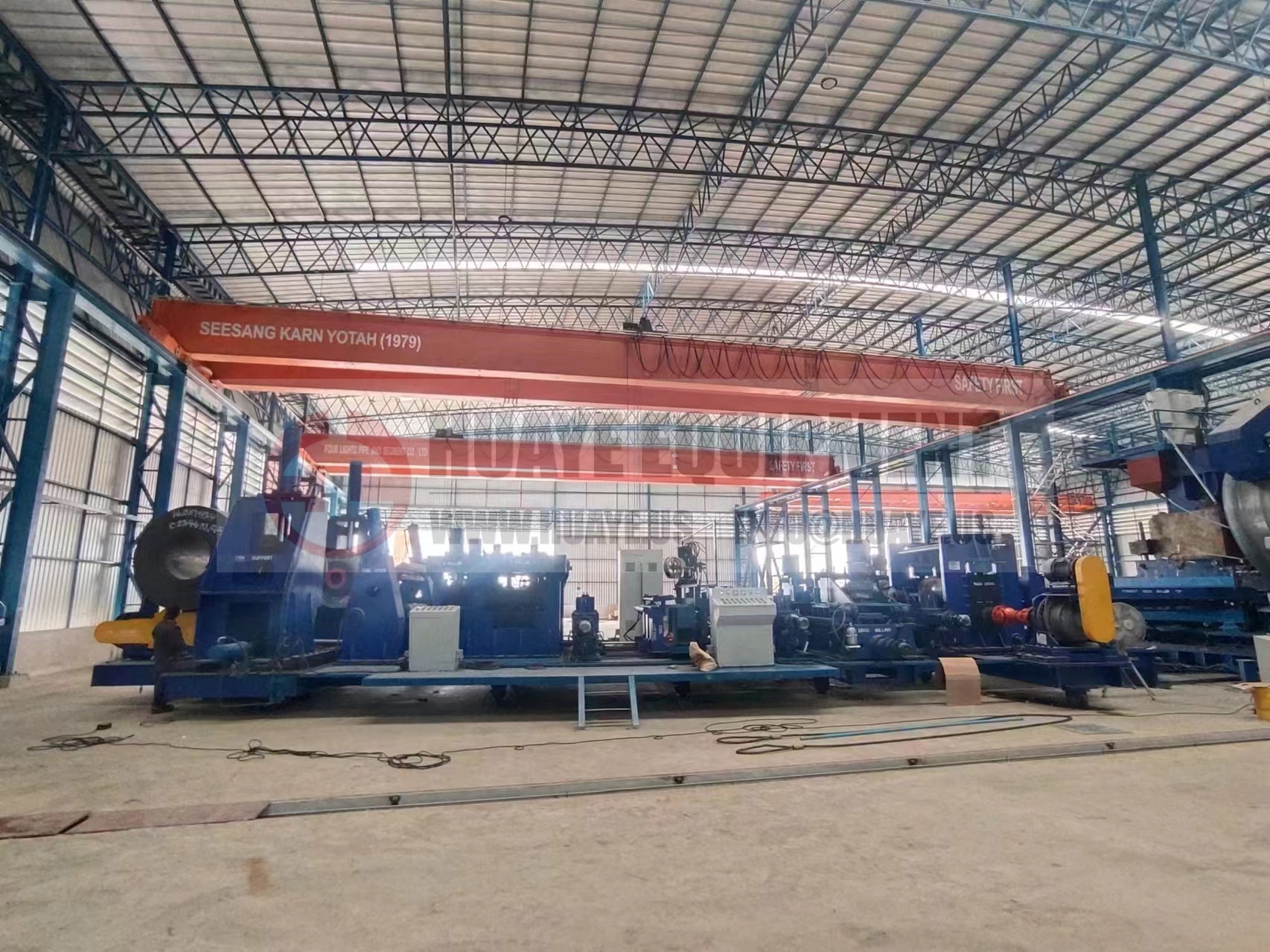The Impact of End Facing and Beveling on the Quality of Spiral Pipes
11 Dec,2024
The Impact of End Facing and Beveling on the Quality of Spiral Pipes
Table of Contents
Introduction to Spiral Pipes
The Importance of End Facing in Pipe Manufacturing
Key Benefits of End Facing
Understanding Beveling and Its Role
Advantages of Beveling for Spiral Pipes
Quality Standards for End Facing and Beveling
The Direct Impact of End Facing and Beveling on Pipe Qu
The Impact of End Facing and Beveling on the Quality of Spiral Pipes
Table of Contents
- Introduction to Spiral Pipes
- The Importance of End Facing in Pipe Manufacturing
- Key Benefits of End Facing
- Understanding Beveling and Its Role
- Advantages of Beveling for Spiral Pipes
- Quality Standards for End Facing and Beveling
- The Direct Impact of End Facing and Beveling on Pipe Quality
- Conclusion: The Value of Precision in Spiral Pipe Manufacturing
- Frequently Asked Questions
Introduction to Spiral Pipes
Spiral pipes are essential components in a variety of industries, including oil and gas, water distribution, and construction. These pipes are known for their strength and durability, largely attributed to their unique manufacturing processes. In this article, we focus on two critical machining processes—end facing and beveling—that significantly influence the overall quality of spiral pipes. Understanding these processes is vital for manufacturers aiming to produce high-quality products that meet industry standards and customer expectations.
The Importance of End Facing in Pipe Manufacturing
End facing is a machining process that involves creating a flat surface at the ends of a pipe. This procedure is crucial for ensuring that the pipe can be properly connected to other components, such as fittings or flanges. The precision of the end face directly influences the integrity of these connections, ultimately affecting the performance and safety of the entire piping system.
Precision in End Facing
High precision in end facing is critical. Any irregularities or inaccuracies can lead to improper fittings, which may result in leaks or failures under pressure. Therefore, manufacturers must utilize advanced machines and techniques to achieve the necessary tolerances in end facing. Automated end facing machines equipped with CNC technology are among the most effective solutions for achieving the desired precision.
Key Benefits of End Facing
The end facing process offers several advantages that impact both the manufacturing process and the final product quality.
Enhanced Connection Quality
A well-executed end facing operation ensures a perfect fit between pipes and their connectors. This reduces the risk of leakage and enhances the reliability of the entire system.
Improved Aesthetic Appeal
End facing contributes to the overall aesthetic of the pipe, making it visually appealing for applications where exposed piping is a consideration.
Better Handling and Installation
Pipes that have undergone proper end facing are easier to handle and install, minimizing the likelihood of damage during transport and assembly.
Understanding Beveling and Its Role
Beveling is the process of creating a sloped edge at the end of a pipe. This technique is particularly important when joining pipes, as it facilitates a more secure weld. Beveling edges can range from slight angles to more aggressive slopes, depending on the specific application and requirements.
Types of Bevels
Different bevel types serve various purposes, including:
- **Single Bevel**: One side of the pipe is angled, suitable for certain welding techniques.
- **Double Bevel**: Both sides are angled, enhancing weld penetration and strength.
- **J-Bevel**: A J-shaped bevel that provides a strong weld joint.
Advantages of Beveling for Spiral Pipes
The beveling process plays an integral role in ensuring the quality and durability of spiral pipes.
Facilitating Stronger Welds
Beveled edges allow for better penetration of welding materials, which results in stronger and more durable joints. This is particularly crucial in high-pressure applications, where the integrity of the weld can mean the difference between safety and failure.
Reducing Stress Concentration
Beveling helps distribute tensile stresses more evenly across the joint, minimizing the risk of cracks or failures that can occur in straight edges under pressure.
Minimizing Heat Affected Zones
Beveling can reduce the size of the heat-affected zone (HAZ) during welding, lowering the risk of thermal distortion and improving overall material properties.
Quality Standards for End Facing and Beveling
Manufacturers must adhere to strict quality standards when performing end facing and beveling. Organizations such as the American Society of Mechanical Engineers (ASME) and the American National Standards Institute (ANSI) provide guidelines that ensure consistency and quality across the industry.
Testing and Inspection
Routine testing and inspection are crucial to maintaining compliance with these standards. Common practices include:
- **Visual Inspections**: Checking for surface imperfections or irregularities.
- **Dimensional Measurements**: Ensuring that end faces and bevels meet specified tolerances.
- **Non-Destructive Testing (NDT)**: Techniques like ultrasonic testing to detect internal flaws.
The Direct Impact of End Facing and Beveling on Pipe Quality
Both end facing and beveling have a profound impact on the overall quality and performance of spiral pipes.
Influence on Durability
Pipes that undergo proper end facing and beveling exhibit enhanced durability. The quality of the connections and welds directly correlates with the pipe’s ability to withstand pressure and environmental factors.
Cost Implications
Investing in quality end facing and beveling can lead to long-term cost savings. By reducing the risk of failures and leaks, manufacturers can avoid the expenses associated with repairs, replacements, and potential liability.
Customer Satisfaction
Ultimately, the quality of spiral pipes affects customer satisfaction. Providing products that meet or exceed expectations leads to repeat business and an enhanced reputation in the industry.
Conclusion: The Value of Precision in Spiral Pipe Manufacturing
In the competitive landscape of manufacturing, precision in end facing and beveling is not just a technical requirement; it is a cornerstone of quality assurance. We have explored how these processes significantly influence the durability, performance, and overall quality of spiral pipes. Manufacturers who prioritize these machining techniques will not only meet industry standards but also enhance customer satisfaction and loyalty. By understanding the critical role of end facing and beveling, we can ensure that our spiral pipes perform reliably in demanding applications.
Frequently Asked Questions
1. What is the difference between end facing and beveling?
End facing creates a flat surface at the ends of the pipe, while beveling involves angling the edges to facilitate welding and enhance joint integrity.
2. Why is precision important in end facing?
Precision in end facing is crucial for ensuring proper fittings and connections, which prevents leaks and maintains the integrity of the piping system.
3. What are the common applications for spiral pipes?
Spiral pipes are commonly used in industries such as oil and gas, water distribution, construction, and infrastructure projects.
4. How can manufacturers ensure quality in their machining processes?
Manufacturers can ensure quality by adhering to established industry standards, conducting regular inspections, and utilizing advanced machinery for precision machining.
5. What are the long-term benefits of investing in quality end facing and beveling?
Investing in quality machining processes leads to enhanced durability, reduced repair costs, and improved customer satisfaction, ultimately benefiting the manufacturer’s reputation and bottom line.
Key words:
All
- All
- Product Management
- News
- Introduction
- Enterprise outlets
- FAQ
- Enterprise Video
- Enterprise Atlas
Related News
Essential Insights into Pipe Prepping Machines: A Comprehensive Guide
In the manufacturing and processing machinery sector, particularly in the realm of electric tools, the pipe prepping machine stands out as a crucial tool for ensuring high-quality pipe preparation. These machines are designed to prepare pipe edges for welding and other applications, making them a vital component in various industrial processes. Understanding the functionality and advantages of pip
2025-12-08
How to Ensure Your Pipe Welding Equipment Meets Industry Standards
How to Ensure Your Pipe Welding Equipment Meets Industry Standards
Table of Contents
Understanding Industry Standards for Pipe Welding Equipment
Importance of Compliance with Industry Standards
Key Components of Pipe Welding Equipment
Regulatory Bodies and Standards Governing Pipe Welding
Regular Maintenance and Inspection of Welding Equipment
Training and Certification fo
2025-12-03
Essential Guide to Pipe Welding Equipment for Efficient Manufacturing
Pipe welding equipment plays a crucial role in various manufacturing processes, particularly in industries that involve metal fabrication and assembly. Whether you're working with steel, aluminum, or other metals, understanding the different types of equipment and their functionalities can enhance efficiency and quality.
One of the primary components of pipe welding equipment is the welding machin
2025-11-28







